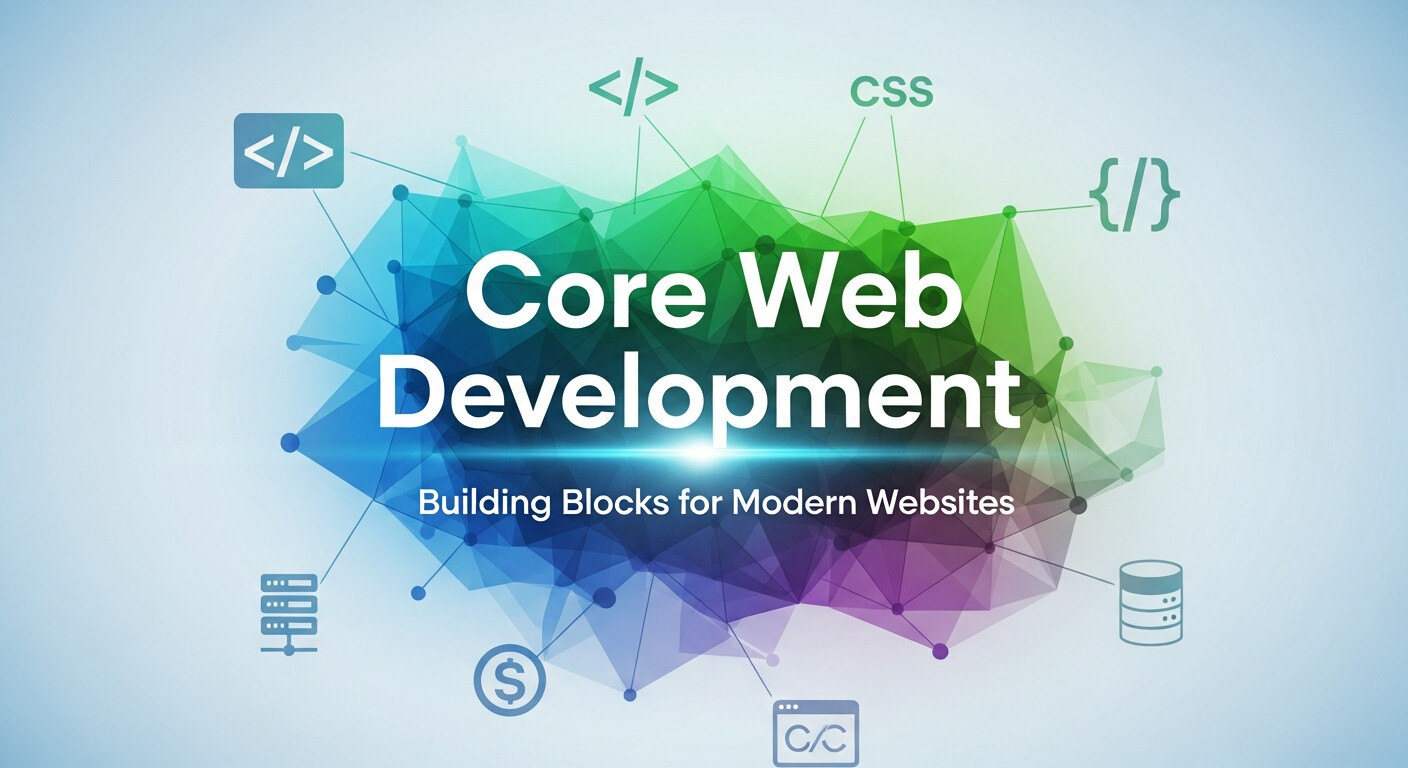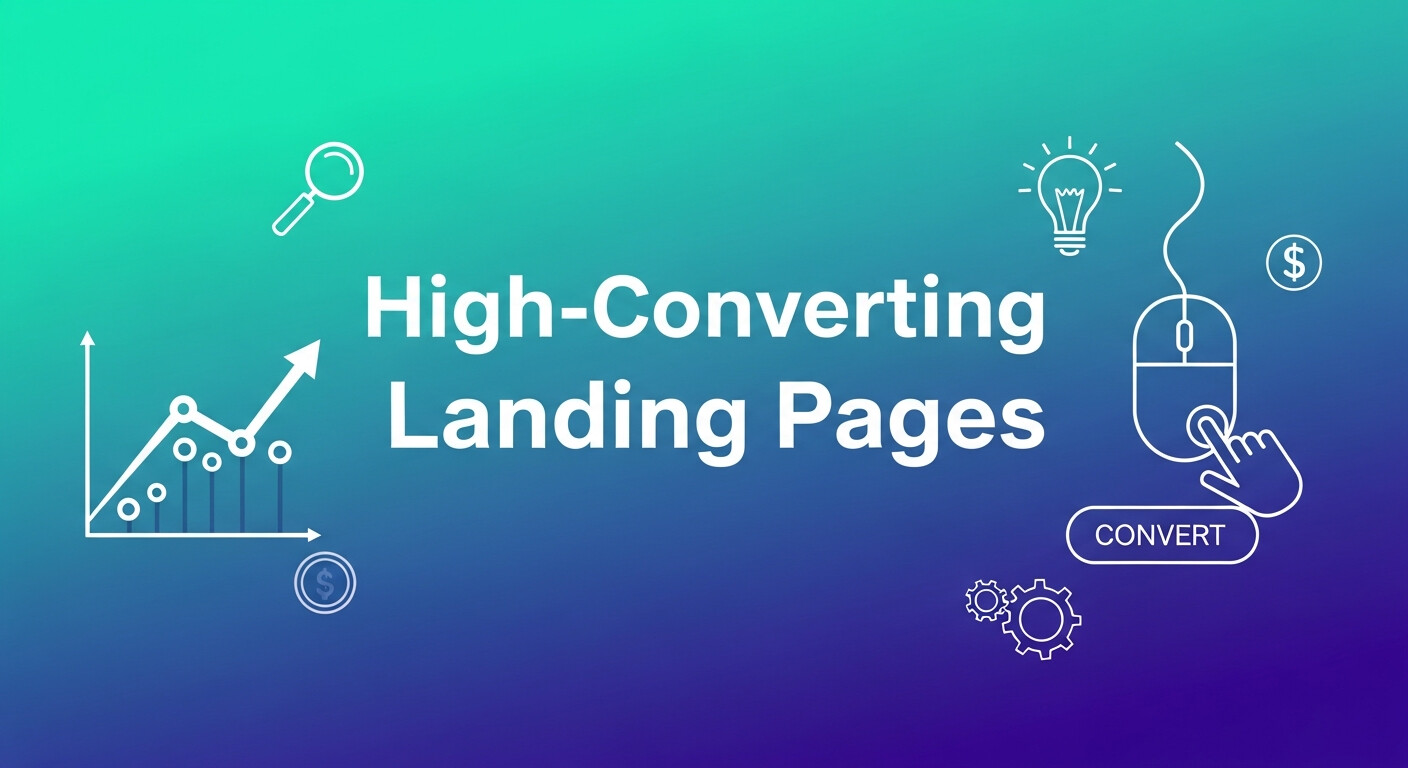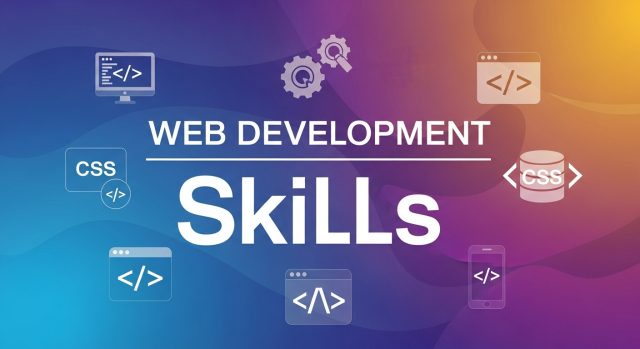The lines between web development and digital marketing continue to blur as businesses demand more sophisticated online experiences. Modern marketers who understand web development principles can create campaigns that not only look great but also perform exceptionally well across all digital touchpoints.
This comprehensive guide explores how web development skills can elevate your digital marketing efforts, from building conversion-optimized landing pages to implementing advanced tracking systems. You’ll discover practical strategies for integrating development best practices into your marketing workflow and learn why technical knowledge has become essential for marketing success.
Why Web Development Knowledge Matters for Modern Marketers
Digital marketing has evolved far beyond posting on social media or running simple ad campaigns. Today’s successful marketers need to understand how websites function, how users interact with digital interfaces, and how technical implementations impact campaign performance.
The Technical Foundation of Marketing Success
Every marketing campaign ultimately drives traffic to a digital property—whether that’s a website, landing page, or mobile app. Without understanding how these platforms work, marketers risk creating campaigns that fail to convert despite generating significant traffic.
Web development knowledge helps marketers make informed decisions about user experience, page speed optimization, and conversion funnel design. These technical factors directly impact marketing ROI and campaign effectiveness.
Bridging the Gap Between Marketing and Development Teams
Organizations with strong collaboration between marketing and development teams consistently outperform those with siloed departments. Marketers who speak the same language as developers can communicate requirements more effectively, troubleshoot issues faster, and implement solutions that align with both marketing goals and technical constraints.
Core Web Development Concepts Every Marketer Should Know

Understanding fundamental web development principles doesn’t require becoming a coding expert. Focus on these essential concepts that directly impact marketing performance.
HTML and CSS Fundamentals
HTML structures web content while CSS controls its appearance. Marketers benefit from understanding these basics because they affect everything from email campaigns to social media posts.
Basic HTML knowledge helps you create properly formatted email newsletters, optimize content for search engines, and troubleshoot display issues across different platforms. CSS understanding enables you to make quick design adjustments without waiting for developer assistance.
JavaScript and User Experience
JavaScript powers interactive elements that can significantly impact conversion rates. Understanding how JavaScript works helps marketers identify opportunities for improved user engagement and recognize potential technical barriers to conversion.
Common JavaScript applications in marketing include form validation, dynamic content loading, and user behavior tracking. Marketers who understand these concepts can better collaborate with developers to create seamless user experiences.
Responsive Design Principles
With mobile traffic accounting for over half of all web visits, responsive design has become crucial for marketing success. Understanding how websites adapt to different screen sizes helps marketers create content that performs well across all devices.
Responsive design knowledge enables marketers to optimize images, adjust content layout, and ensure consistent messaging regardless of how users access your content.
Building High-Converting Landing Pages

Landing pages serve as the crucial bridge between marketing campaigns and business objectives. Web development skills enable marketers to create pages that not only look professional but also convert visitors into customers.
Page Speed Optimization
Page speed directly impacts both user experience and search engine rankings. Studies show that pages loading in under three seconds have significantly higher conversion rates than slower alternatives.
Key optimization techniques include image compression, code minification, and efficient server configuration. Marketers who understand these concepts can work with developers to implement performance improvements that boost campaign effectiveness.
Conversion-Focused Design Elements
Effective landing pages balance aesthetic appeal with functional efficiency. Understanding web development principles helps marketers create designs that guide users toward desired actions without technical barriers.
Important design considerations include button placement, form optimization, and visual hierarchy. These elements require both marketing insight and technical implementation to achieve optimal results.
A/B Testing Implementation
Web development knowledge enables marketers to implement sophisticated A/B testing strategies that go beyond simple headline changes. Understanding how to modify page elements programmatically allows for more comprehensive testing approaches.
Advanced testing might include different user flows, dynamic content personalization, or interactive element variations. These tests require coordination between marketing strategy and technical implementation.
SEO and Technical Marketing Integration

Search engine optimization increasingly depends on technical factors that require web development understanding. Modern SEO success demands knowledge of how search engines interact with websites at a technical level.
Technical SEO Fundamentals
Technical SEO encompasses all the behind-the-scenes elements that affect search engine rankings. This includes site structure, URL optimization, schema markup, and server configuration.
Marketers who understand these technical aspects can identify optimization opportunities that might otherwise be overlooked. They can also communicate more effectively with developers about implementing SEO improvements.
Site Structure and Navigation
Website architecture significantly impacts both user experience and search engine crawling efficiency. Understanding how to organize content hierarchically and create intuitive navigation systems requires both marketing insight and technical knowledge.
Effective site structure helps users find information quickly while enabling search engines to understand content relationships. This dual focus requires collaboration between marketing strategy and technical implementation.
Performance Monitoring and Analytics
Web development knowledge enables marketers to implement more sophisticated tracking systems that provide deeper insights into user behavior and campaign performance.
Understanding how tracking codes work, how data flows between systems, and how to troubleshoot measurement issues allows marketers to make data-driven decisions with confidence.
Leveraging Advanced Tools for Smarter Marketing
Modern digital marketing increasingly relies on sophisticated tools to streamline workflows and enhance decision-making. By integrating advanced development platforms into marketing strategies, teams can automate repetitive tasks, analyze user behavior, and personalize experiences more efficiently. These platforms often incorporate features like predictive analytics, dynamic content delivery, and intelligent automation, allowing marketers to make data-driven decisions with greater precision. Professionals familiar with web application development can optimize these tools, ensuring seamless integration with existing systems and improving overall campaign performance. The combination of technical proficiency and marketing insight helps create highly targeted campaigns that drive engagement, increase conversions, and provide measurable ROI across multiple digital channels.
Embracing Emerging Technologies in Digital Campaigns

As technology evolves, marketers must adopt innovative solutions to remain competitive. AI-driven development frameworks and intelligent platforms enable the creation of highly interactive user experiences and adaptive content tailored to individual preferences. Understanding how AI web developer tools function allows marketers to design campaigns that respond to user behavior in real time, optimizing engagement and retention. By leveraging these technologies, marketing teams can automate content testing, analyze complex data sets, and predict trends, all while reducing manual effort. Integrating emerging tech into digital marketing strategies empowers organizations to deliver smarter, faster, and more personalized campaigns, strengthening brand presence and fostering long-term customer loyalty.
Email Marketing and Development Integration
Email marketing remains one of the highest-ROI digital marketing channels, but success requires understanding how email clients render HTML and CSS code differently than web browsers.
Email Template Development
Creating effective email templates requires understanding the limitations and quirks of various email clients. Different platforms handle HTML and CSS differently, requiring specialized knowledge for optimal display.
Marketers who understand email development can create templates that look professional across all major email clients while maintaining consistency with brand guidelines.
Automation and Personalization
Advanced email marketing increasingly relies on dynamic content and sophisticated automation workflows. Understanding how these systems work enables marketers to create more personalized experiences that drive higher engagement rates.
Dynamic content allows for real-time personalization based on user behavior, preferences, or demographic information. Implementing these features requires coordination between marketing strategy and technical execution.
Deliverability and Technical Considerations
Email deliverability depends on numerous technical factors including sender reputation, authentication protocols, and list hygiene. Understanding these elements helps marketers optimize their email programs for maximum inbox placement.
Technical considerations include SPF records, DKIM signatures, and DMARC policies. These authentication methods require web development knowledge to implement correctly.
Social Media and Web Development Convergence
Social media marketing increasingly requires understanding how platforms interact with websites and how to optimize content for social sharing.
Open Graph and Social Sharing Optimization
When users share website content on social media, platforms use Open Graph tags to determine how that content appears in social feeds. Understanding how to implement and optimize these tags can significantly impact social media engagement.
Proper Open Graph implementation ensures that shared content displays with appropriate images, titles, and descriptions across all major social platforms.
Social Media APIs and Integration
Many effective social media strategies involve integrating social platforms with websites or other marketing tools. Understanding how APIs work enables marketers to create more sophisticated social media campaigns.
API integration might include social login systems, content syndication, or automated posting workflows. These implementations require both marketing strategy and technical knowledge.
Cross-Platform Tracking and Attribution
Understanding how users move between social media platforms and websites requires knowledge of tracking mechanisms and data flow. This understanding enables more accurate attribution and campaign optimization.
Cross-platform tracking involves implementing tracking pixels, understanding cookie policies, and coordinating data between different marketing platforms.
Future-Proofing Your Marketing Career
The integration of web development and digital marketing will only continue to deepen as technology evolves. Marketers who develop technical skills now will be better positioned for future opportunities.
Emerging Technologies and Marketing Applications
New technologies like artificial intelligence, augmented reality, and voice search are creating new marketing opportunities that require technical understanding to implement effectively.
Understanding how these technologies work enables marketers to identify relevant applications for their specific industries and target audiences.
Continuous Learning and Skill Development
The rapid pace of technological change requires ongoing education and skill development. Marketers should focus on understanding fundamental concepts rather than memorizing specific tools or platforms.
Building a strong technical foundation enables marketers to adapt quickly to new tools and platforms as they emerge.
Transforming Your Marketing Through Technical Understanding
Web development knowledge has become essential for modern digital marketing success. The marketers who thrive in this evolving landscape are those who understand how technical implementation impacts campaign performance and user experience.
Start by focusing on the fundamentals that most directly impact your current marketing efforts. Whether that’s understanding page speed optimization, implementing proper tracking systems, or creating responsive email templates, begin with areas where technical knowledge can immediately improve your results.
The goal isn’t to become a professional developer, but rather to understand enough about web development to make informed marketing decisions and collaborate effectively with technical teams. This knowledge will enhance your marketing effectiveness while opening new opportunities for career growth.
Choose one technical area from this guide and commit to learning it over the next month. As you build confidence in that area, gradually expand your technical knowledge to cover additional aspects of web development that support your marketing objectives.
Frequently Asked Questions (FAQ)
Why should digital marketers learn web development basics?
Web development knowledge helps marketers understand how websites function, improve user experience, and create campaigns that convert better. It also enables smoother collaboration with development teams.
Do marketers need to know coding to succeed?
No, marketers don’t need to become full-stack developers. However, understanding basics like HTML, CSS, JavaScript behavior, and responsive design helps them make better strategic and technical decisions.
How does web development improve conversion rates?
Web development principles improve page speed, layout structure, form usability, and mobile responsiveness—all of which directly influence user behavior and conversion performance.
What web development skills are most useful for marketers?
The most valuable skills include HTML/CSS fundamentals, responsive design concepts, page speed optimization, basic JavaScript understanding, and technical SEO knowledge.
How does web development support SEO efforts?
Web development supports SEO through proper site structure, fast loading pages, clean URLs, schema markup, and mobile-friendly design, all of which help search engines crawl and rank content effectively.
Can web development knowledge improve email marketing?
Yes. Understanding how HTML and CSS render in different email clients helps marketers create emails that display correctly, improve deliverability, and increase engagement.
How does technical knowledge help with analytics and tracking?
Marketers with technical understanding can implement tracking codes correctly, troubleshoot data issues, and ensure accurate measurement of user behavior across platforms.
Is web development knowledge important for social media marketing?
Yes. Social sharing optimization, Open Graph tags, tracking pixels, and API integrations all require basic web development knowledge to maximize social media performance.
How can marketers start learning web development?
Marketers can start with HTML and CSS basics, then move into page performance, responsive design, and technical SEO. Hands-on practice with landing pages is highly effective.
Will web development skills future-proof a marketing career?
Absolutely. As digital experiences become more complex, marketers with technical knowledge will have a competitive advantage and greater career flexibility.







